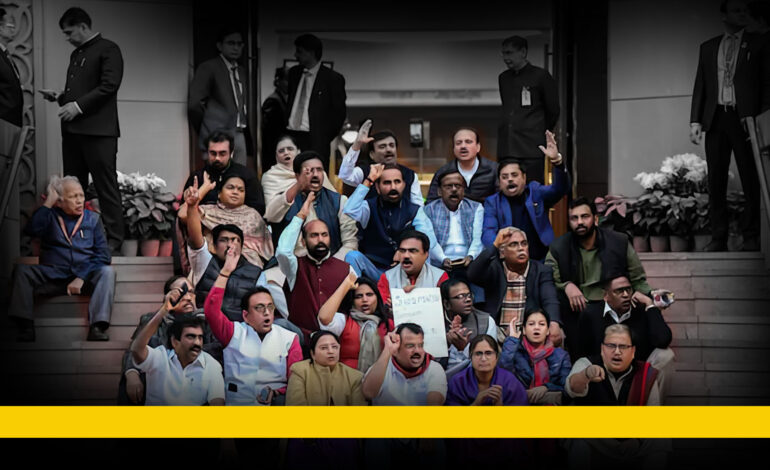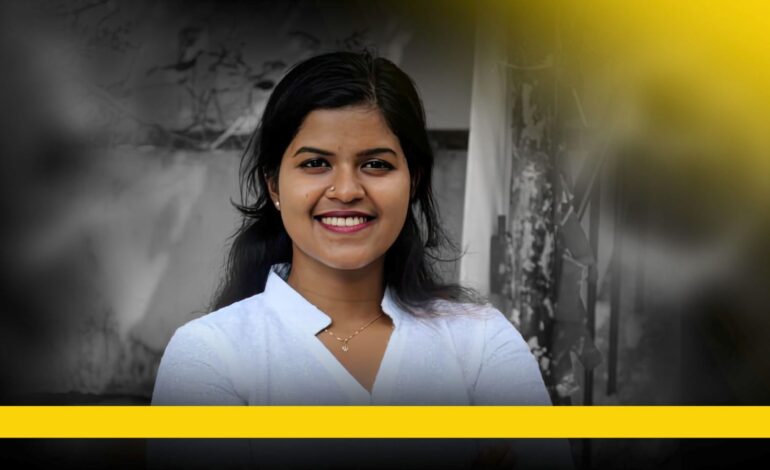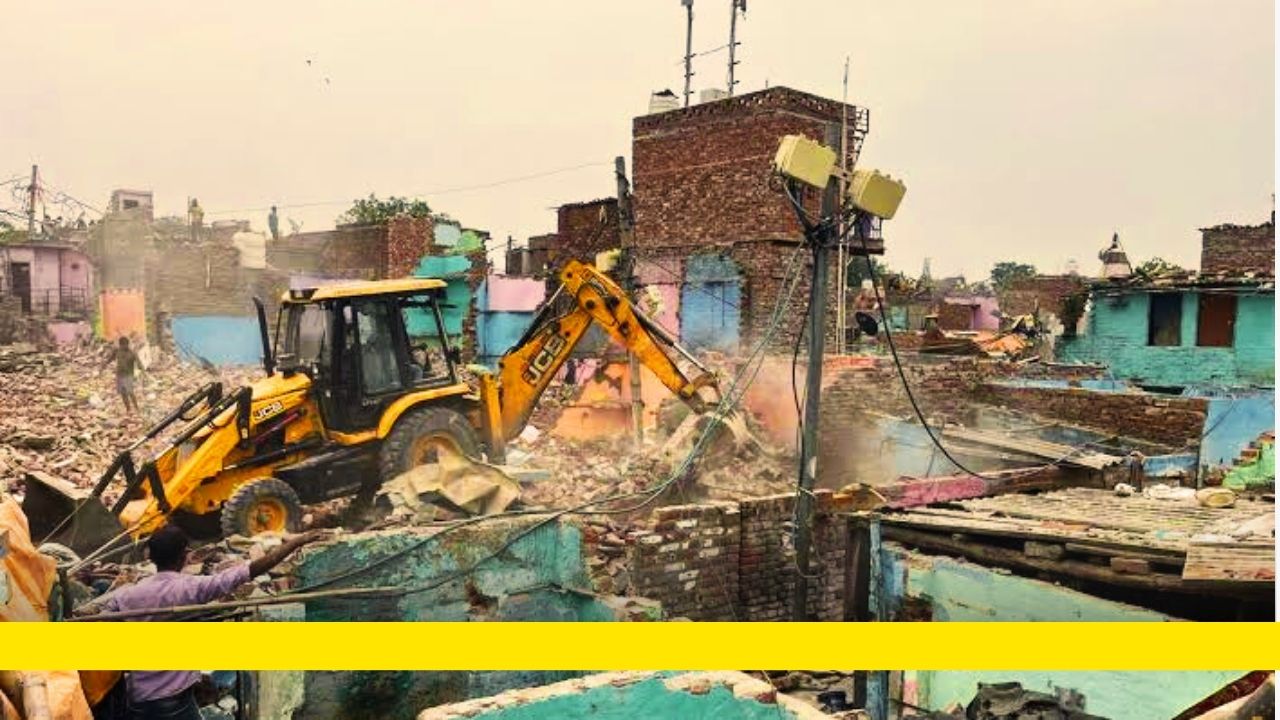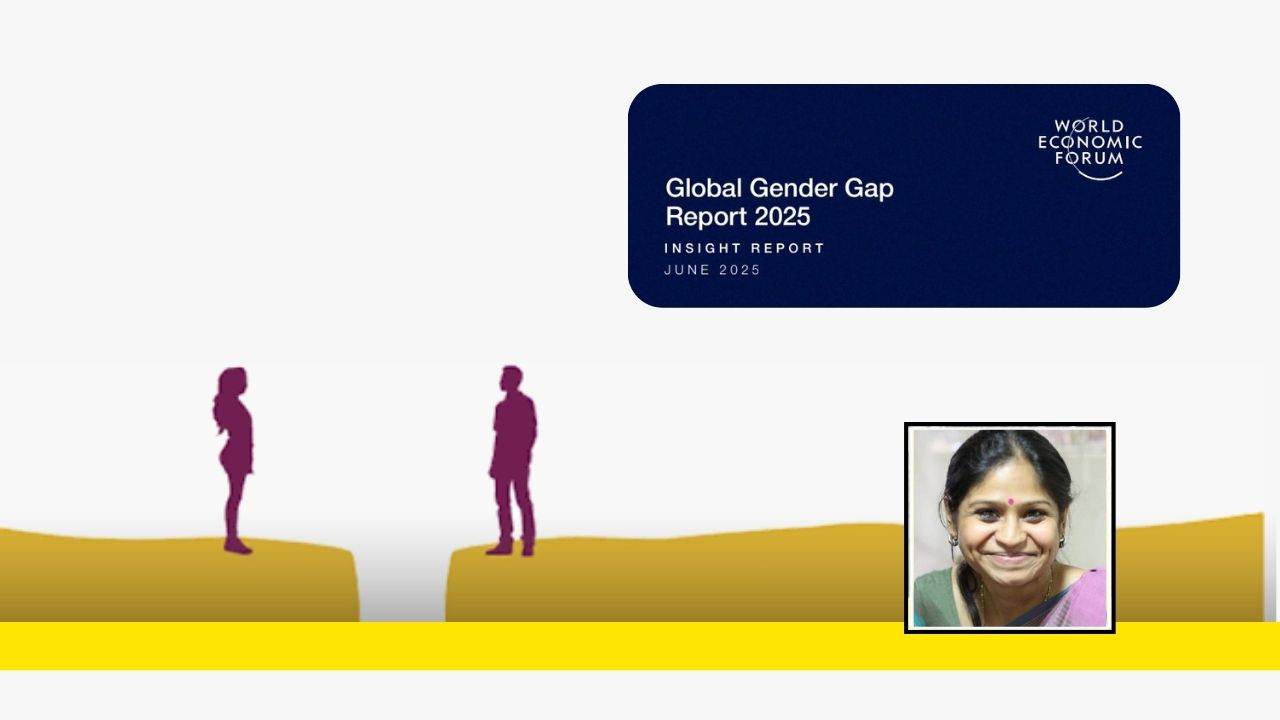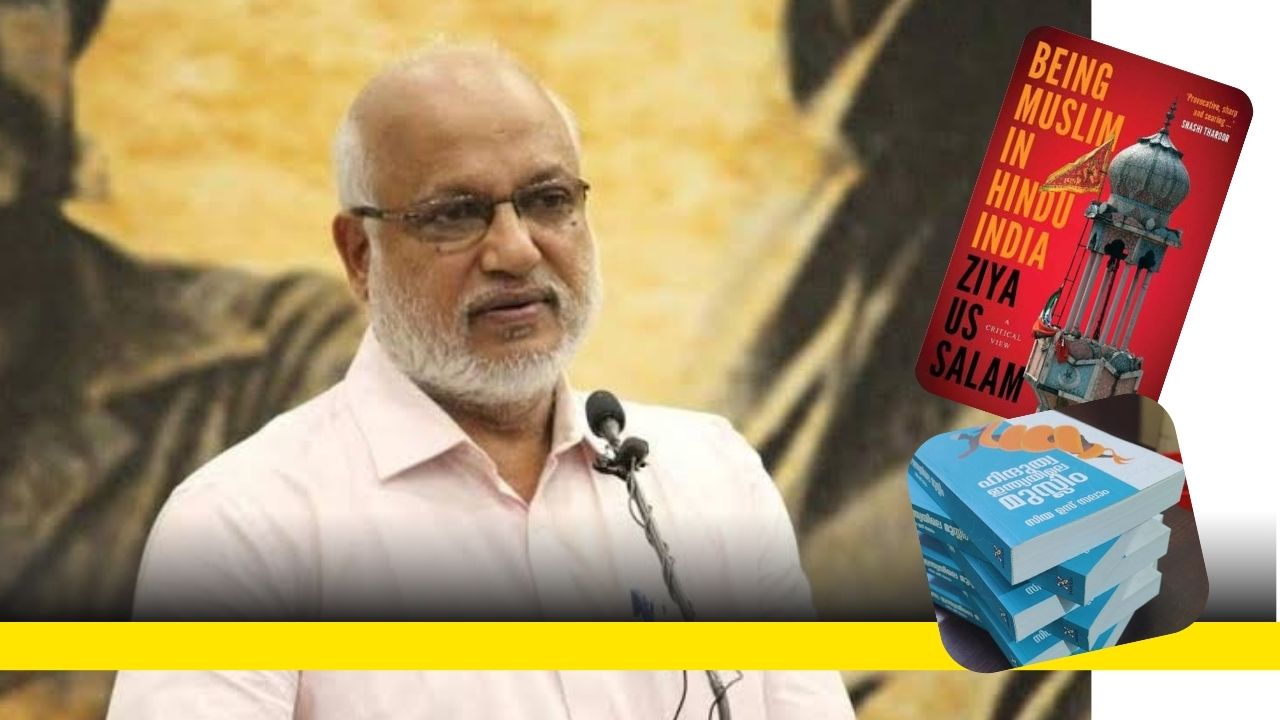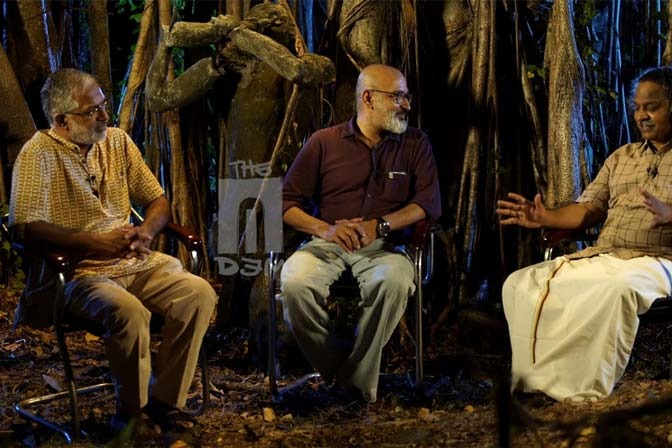Parliament Attack and Surveillance Raj
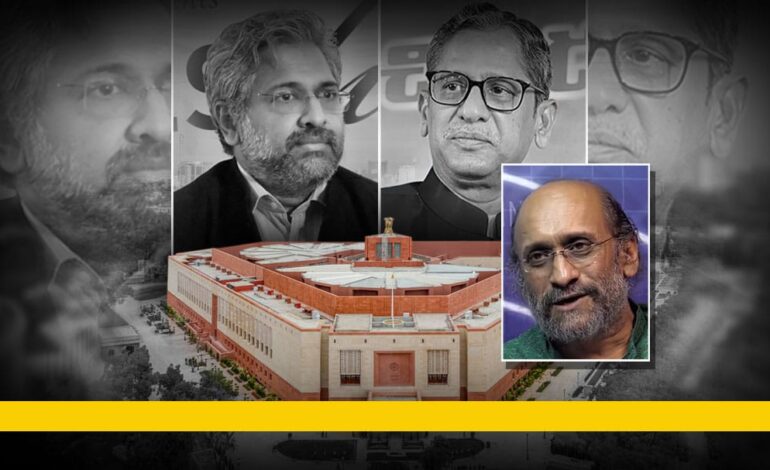
A Conversation with Paranjoy Guha Thakurtha
The Indian Parliament has gone through one of the worst periods in its history with the serial suspension of as many as 146 MPs in a matter of a few days. These suspensions were triggered by the vociferous demands from the MPs for an explanation from Prime Minister Narendra Modi and union Home Minister Amit Shah on the security lapses that led to the security breach in the parliament on December 13, 2023. The breach- which was characterised by sections of the media as the second attack on parliament- was carried out by a group of young people.
Political Analyst, Economist and Social Activist Paranjoy Guha Thakurtha discussed this context with Venkitesh Ramakrishnan, Managing Editor, The AIDEM. In this freewheeling conversation, Guha Thakurtha, points out that the linkages between these developments and the Surveillance Raj being built up by the Modi Regime are grave.
Venkitesh Ramakrishnan: Hello and welcome back to The AIDEM Interactions and with me is Paronjay Guha Takurta who has appeared in several of The AIDEM Interactions. We have mostly discussed issues relating to economy, larger politics, and sometimes the attack on journalists in the earlier interactions. In the current context, however, I would like to look at another area of your expertise relating to security issues, especially in relation to how you have been targeted by governments and agencies. As far as government surveillance is concerned, you have been in almost all the surveillance lists that have come out so far..
Paranjoy Guha Thakurtha: How do you know whether these lists are real or unreal?
Venkitesh: But it has been there always…
Paranjoy: Thank you Venkitesh and I wish all the viewers of AIDEM, Media spelt backwards all the very best.
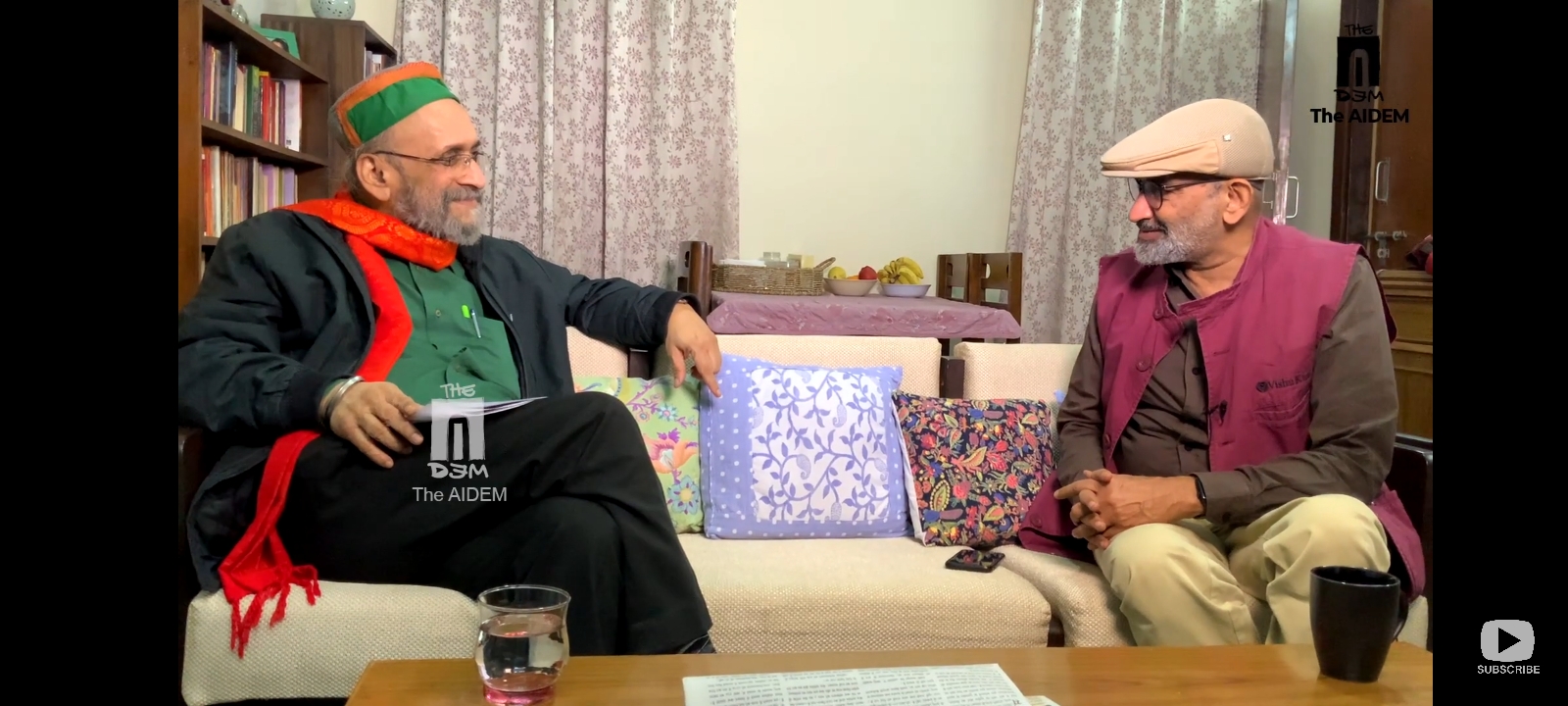
Venkitesh: Thank you. The context is very interesting. You have had this incursion into Parliament recently where people got over so many layers of security and got into the Parliament and jumped into the well. The intruders had these colour canisters and used it inside the parliament and in the campus. On the one hand, you have this serious breach in security. But on the other hand, a few days ago, we had this Apple alert going to the opposition leaders and journalists including Sidharth Varadarajan of The Wire saying that their phone is getting compromised. Before that you had the raids on NewsClick and associated journalists with so many laptops being captured …
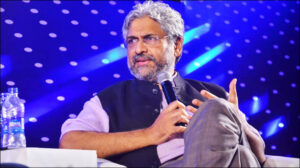
Paranjoy: Over 300 laptops, mobiles, and other personal electronic devices like hard disks, and pendrives, as we speak, have been with the Delhi police since the 3rd of October..
Venkitesh: Yes, this is certainly a phenomenal case of surveillance and the incursion into the private space of people, especially into the professional and personal lives of journalists because these things are instruments used for their career. So, I want you to look at this situation where we have this contrast. On the one side where your celebrated security systems are getting breached by people who are seemingly ordinary and on the other side, you have this huge surveillance machinery against journalists and politicians.

Paranjoy: It is indeed a very interesting question and I would like to draw parallels with what happened in the Parliament, where four young persons, all of them who claimed that they were highlighting the issue of unemployment, were able to smuggle in these canisters containing the smoke bombs, harmless as they were, and the fact that their visitors passes were signed by an MP belonging to the ruling party, the BJP, shows something. Which is that you can have a Surveillance Raj, and I strongly believe India is currently in a Surveillance Raj, but still you cannot stop human beings and their Ingenuity from infiltrating the most tight security conditions. Parliament is supposed to be a high security Zone. Then how is it that these young people, young just compared to me since I’m a senior citizen, were able to do what they did? Let me draw a parallel now. Lot of the surveillance that is taking place includes Pegasus, which is a spyware is made in Israel. Israel is making the most dangerous and the most sophisticated spyware, available anywhere across the world But how is it that on the 7th of October, (2023) the military forces of Israel would not detect the attack by Hamas? Of course, there are conspiracy theories circulating on that but the short point is that the Surveillance Raj has gaps and human Ingenuity is such that the most tight of all security zones can be infiltrated.
Venkitesh: You said, surveillance Raj has gaps..?
Paranjoy: As you rightly pointed out, several members of the Parliament, leaders belonging to political parties that are opposed to the ruling regime, the BJP-led government headed by Prime Minister Narendra Mod, how come all of them receive this message from Apple, the makers of iPhone, which is supposed to be highly secure, and far more secure than the cellular mobile phones that have a more commonly used Android operating system. Yet, Apple has to send them a message, a warning message; these include people who are working in the office of Rahul Gandhi.
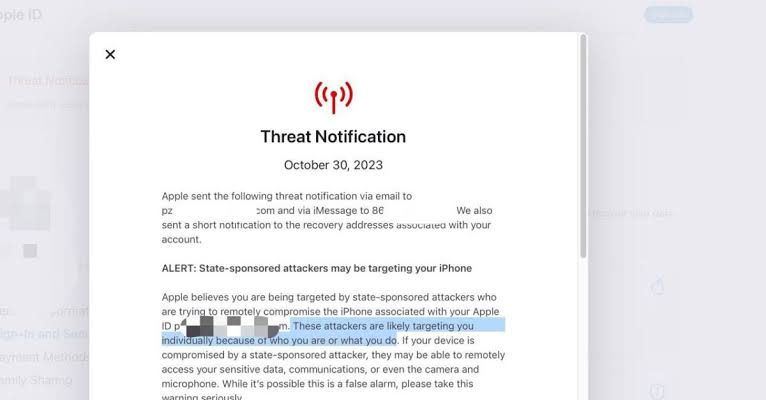
A few individuals on the other side also, including a person who works for the Observer Research Foundation that you know is financially supported by the Ambanis. And of course as you mentioned, Siddarth Varadarajan and other journalists who have reported against Gautam Adani’s shenanigans or his empire; journalists like Ravi Nair, and Anand Mangnale. They work for this international organisation called the OCCRP, which is the Organized Crime and Corruption Reporting Project. Why were they all alerted by Apple? And let me read out what Apple send to all of these people; I quote, “State sponsored attackers may be targeting your iPhone and these attackers are likely targeting you individually because of who you are, or what you do. If your device is compromised by a state sponsored attacker, they may be able to remotely access your sensitive data, communications, or even the camera and the microphone.” I am reading out an except from the message. The government is, I should say, ham-handed in its job of trying to cover up. Why were the people who got these messages invariably, almost all of them, opposed to the ruling regime, and why these journalists in particular? So, the point that has to be made is that the Surveillance Raj is real and it exists in India and I have reason to believe that my phone was compromised sometime in between March April and May of 2018. I learned about it much later. I learned about it three years later but this was on the basis of a forensic examination done by a Canada-based, Toronto-based lab called Citizen Lab. And they were commissioned by an international NGO called Forbidden Stories, which is a Paris-based organisation and Amnesty International. They examine my phone not once, not twice, but three times. After that, from my phone, the data was extracted by the West Bengal police because there was at that particular point of time, a commission of inquiry headed by retired Justice of the Supreme Court, Madan Lokur. Then, my phone was forensically examined by those appointed by a Supreme Court committee and I can tell you more about what happened on that occasion and most recently in the NewsClick case. So my phone and all that is inside it, all the innards, is now public. My conversations with you, my conversations with my wife, my children, my sources.. remember, this has a chilling effect..
Venkitesh: Absolutely
Paranjoy: Because the people who forensically examined my phone, they asked, what were you working on, what were the stories you were working on, in that period, from March 2018 to May 2018? I had just become a consultant with NewsClick and I said that I remember some stories ; one was a series of articles that later became a book called ‘The Real face of Facebook in India’. It looked at how this company, which is now called Meta, which includes Facebook and Instagram and WhatsApp, how they had become propaganda weapons. The second article that I wrote, you can find it on the website of NewsClick; it was about the late Dhirubbhai Ambani’s money, how it was carving up a business empire through tax havens.. It detailed how the money went from one tax haven to another tax haven and then to another tax haven. The documentation is available and I think the government wanted to know who was my source and who leaked this data because I had every bit of detail, including the bank account details. The I had written to the Ambanis, the older Ambani, Mukesh Ambani, the younger Ambani, Anil Ambani. I said this is the information I have. What do you have to say? They did not respond which I presume meant that my information was right. So, do you want to know who did the talking; somebody in the government, somebody outside? That was the purpose. So, this surveillance that is happening- it’s aimed at having a chilling effect.
Venkitesh: And I think if you draw a parallel, this is exactly what they want to do with NewsClick also, that is to create a chilling effect ….
Paranjoy: Yet the fact is, 75 year old Purkayastha, who founded and was the editor and is the editor of Chief of NewsClick, the private limited company that runs NewsClick, he has been languishing in police custody and judicial custody from the 3rd of October and I don’t know how long he’ll have to stay behind bars. And of course another person by the name of Amit Chakravarthi, who worked in the HR Department of the company, and who is physically challenged, he too is behind bars. So this whole idea is that what we find against you, when we find against you, whether the contents of that FIR, the First Information Report, are correct or not, we can use the most draconian of laws that exist in India- the UAPA- the Unlawful Activities Prevention Act-, which makes it impossible for you to get bail. And this is exactly what has happened to several other people, other journalists, other social activists. And that includes those who are allegedly involved with anti-national elements as in the Bhima Koregaon case. And one of those accused is no more- Father Stan Swami. In their case, you saw there was a forensic examination and they found that false information had been put into their laptops and their computers and used to implicate them. Now this is something everybody should know. There is something called a hash value and what is a hash value? It’s a unique set of numbers and digits which is akin to a digital fingerprint. The hash value is given before they examine the phone. Then after, you can then have evidence of what or whether anything else has been put inside your phone.
Venkitesh: But that was not given in the NewsClick case?
Paranjoy: Yes, they did not. They said, don’t worry, we are doing everything before your eyes. Then they also added that under UAPA, you have to cooperate with the investigators. What is cooperation with the investigators? That includes giving them your mobile phone and your personal electronic device and revealing the passwords and the key words that enable them to open it. I was among the more than 80 individuals who were interrogated across the country, mainly in the national capital territory, some outside Delhi, some in Hyderabad, in Mumbai, and in Kerala. I was given my phone back the same day. Some others had their Sim or the subscriber identity back and they had to purchase new phones. The same is true for laptops and other hard discs. So, you are actually depriving journalists of their livelihood. So this is the chilling effect. Look, what we find in a court of law and when we find it is another matter. The process itself is the punishment.

Venkitesh: But this has been now becoming more and more organised and systematic from the government if you look at the trajectory from the Bhima Koregaon case now to NewsClick and of course the alerts that have come from Apple. So, how does one counter this?
Paranjoy: I don’t know. I think what I do is follow safe practices. People get upset with me sometimes. At least one individual, an eminent individual, was upset with me and I said, “Look, my phone is under surveillance. You are with me; why don’t you keep your phone somewhere else? All right, keep it at some distance away. But these are very sophisticated software. They can listen to you even if your phone is at some distance away. So what do you do? Put it inside a fridge, put it inside a microwave, or put it a long distance away. Right now you have your phone with you. My phone is right here. So, our conversation could be recorded as we are talking and so they know what I’ve said to you. I am deeply disappointed with what the Supreme Court has done or not done (in Pegasus case), and can I quickly recount what happened? This became a big hue and cry and after a lot of humming and hawing, the Supreme Court of India which was then headed by the then Chief Justice of India, N V Ramana. After hearing a lot in the court, including the Solicitor General of India,who spoke on behalf of the government of India, Justice Ramana asked a straight question, “Tell me if any agency of the government of India has purchased the Pegasus software or not.?” And the Solicitor General would neither confirm nor deny. He didn’t say yes and he didn’t say no. He kept on saying, “I can’t disclose this information as it is going to alert the enemies of the nation, the terrorists etc.”.
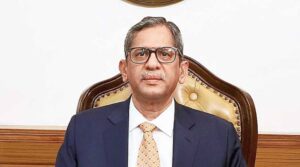
Finally on the 27th of October 2021, the Supreme Court headed by Justice Ramana appointed a committee. It was headed by Justice R V Ravindran who was a retired judge of the Supreme Court. He had two members assisting him- Alok Joshi, former Director of the government’s external intelligence agency which is the R&AW the Research and Analysis Wing, under the Cabinet Secretary. And Sandep Oberoi, who is the Chairman of the subcommittee of an international organisation on standardisation, International ElectroTechnical Commission etc., etc.
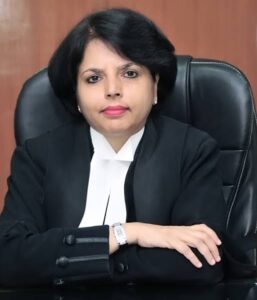
And this committee was in turn supported by another committee of three experts, a technical committee, comprising of Navin Chaudhary, Professor of Cyber Security and Digital Forensics at the National Forensic Sciences University in Gujarat, and Professor Prabakaran, who is from the Amrita Vishwa Vidya Pitam in Kerala and he is an expert on cyber security, and Ashwin Anil Gumaste, who is a professor in the Department of Computer Sciences at the Indian Institute of Technology, Bombay. They presented a report and it took them a long time, marked by several extensions. On October 27, 2021, the committee was appointed and in August 2022, a day before Justice Ramana retired, he observed in court that the government had not cooperated with the committee. He said in the open court as follows: “The government had not cooperated with the technical committee on scrutiny of the devices for Pegasus software.” He was presiding over a three judge bench comprising Justice Surya Kanth and Hima Kohli. It was a voluminous report of three parts and the judges went through it very quickly. The report said that 39 phones were examined and in five of them there was some malware but they couldn’t state whether it was Pegasus or not. And then it was said the report would be uploaded on the website of the Supreme Court. That is, the technical committee’s report would be uploaded after they redacted certain portions of it as there was personal data involved.
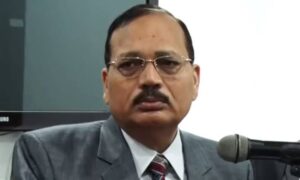
And Justice Ramana said that this committee, headed by Justice Ravindran, had suggested various changes in the existing laws on surveillance. And he said that this whole issue of protecting privacy should be part of the whole, bigger, issue of how to protect the cyber secrecy of the nation. Now, the then Chief Justice Ramana said – this is the day before he retired- “let these observations be made public.” But the report is not made public. So, it’s very interesting. I mean, earlier they said that the invocation of national security does not render the court a mute spectator. This is what the same bench had earlier said. This is how brazen the government is and despite the observations in an open court, the same day, on the 25th of October, the Supreme Court decided to reseal that same report where it is there. And it’s amazing that you keep this report under wraps and it has been around for 14 months or so.
Venkitesh: This is of course again a repeating story in the judiciary….
Paranjoy: You know the depositions that me, Sidharth Varadarajan and several others have made, they were put up on a website of the inquiry committee. I am surprised and I’m shocked that it’s no longer available.
Venkitesh: Don’t tell me, I have read it!
Paranjoy: Everybody has seen it. Go again to that same committee report. The website of that commission is called Pegasus or something about Pegasus. Everything is there except the depositions, how come?
Venkitesh: Well, That’s news to me. Actually I didn’t realise this..
Paranjoy: Yes, it is a fact. Check it out, don’t believe me. So, I am saying, here is a government that cannot prevent the breach of parliament security, I mean, prevent a few young people from infiltrating the security cordon in Parliament, but it goes out of its way to make India into a kind of a Surveillance Raj.
Venkitesh: As you said, you don’t have an answer to this but then I think you know it’s important that we present the situation to the World at large, to our audiences, and maybe we can have a nationwide debate on these issues..
Paranjoy: I really wonder Venkitesh.. is it an obligation? To you and I, it is, that not only our privacy is being invaded, when it is supposed to be a part of our fundamental right according to the Supreme Court itself- the Justice Putta Swami case, the judgement. Does it matter? I am asking.. Can it become a public issue? Because you’re not just infringing on individual privacy; what about freedom of expression, which is a fundamental right of every citizen under article 19 (1) (a)? What does this mean for democracy in this country? These are bigger questions and I think they’re very important questions. Can it become a public issue? I hope it can..
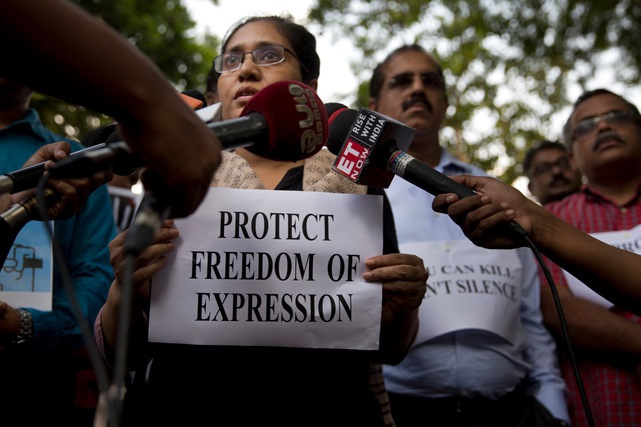
Venkitesh: I think, maybe, this conversation can be a beginning. I think since we have dealt with this issue in some detail; you have of course gone into the details of how all these happened. It is shocking that the depositions are missing from the website. I mean, it should actually become a national movement; the social activists of this country, the political leaders of this country, including people in the BJP who claim that they have fought for democratic rights during the Emergency…
Paranjoy: When the list of people allegedly attacked by Pegasus came out, there were the ministers including Ashwini Vaishnav, who is the Railway Minister, the Information Technology Minister, and the Communications Minister. This is before he held these ministerial positions.
Venkitesh: This struggle for democracy and democratic rights.. many BJP leaders claim that they were part of that struggle during the emergency but if they are true to the kind of the so-called history that they have, I think they should also be taking this up and I hope that this conversation that we have started, gathers momentum and is picked up by people in various walks of life.
At the same time, in spite of this surveillance and these systems that they systematically built up, people are still able to kind of bypass them. I think these two questions, the question of security as well as surveillance, need to be discussed together and hopefully this conversation will make a positive beginning for a debate.
To watch the full video interview, Click Here.
To receive updates on detailed analysis and in-depth interviews from The AIDEM, join our WhatsApp group. Click Here. To subscribe to us on YouTube, Click Here.


